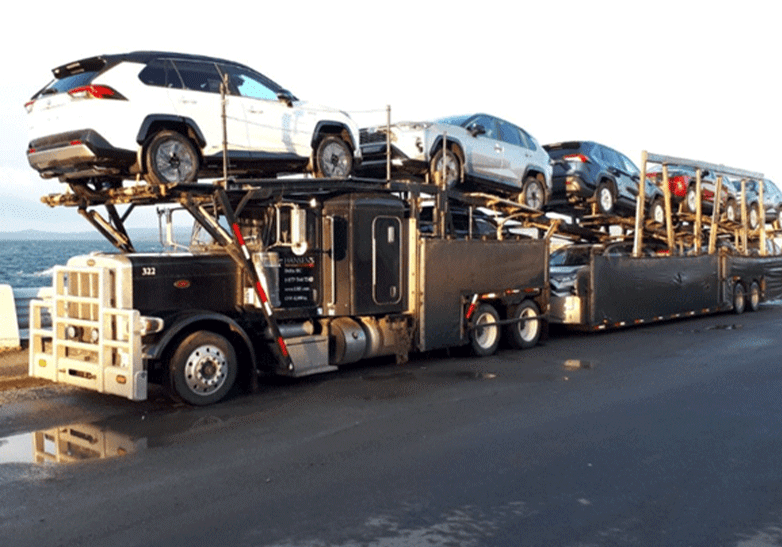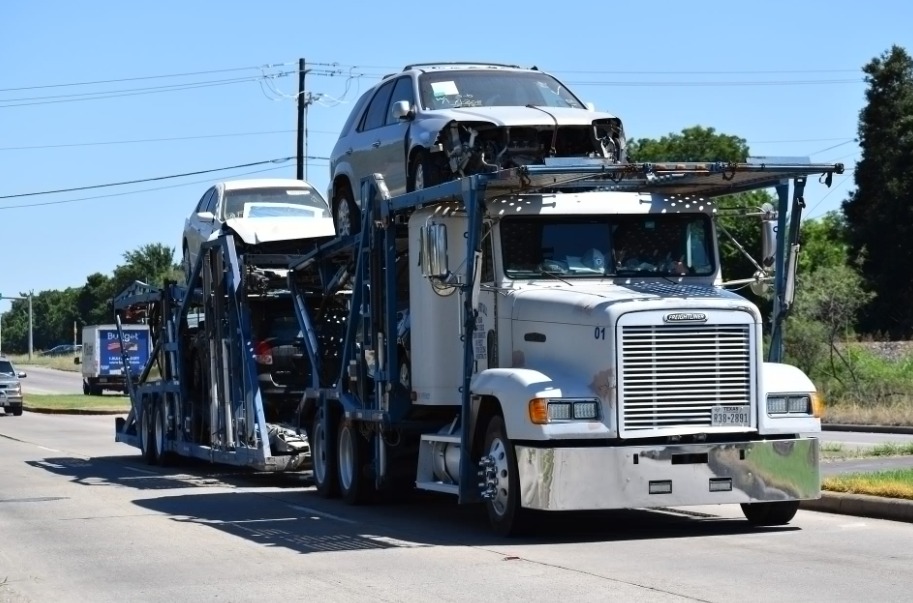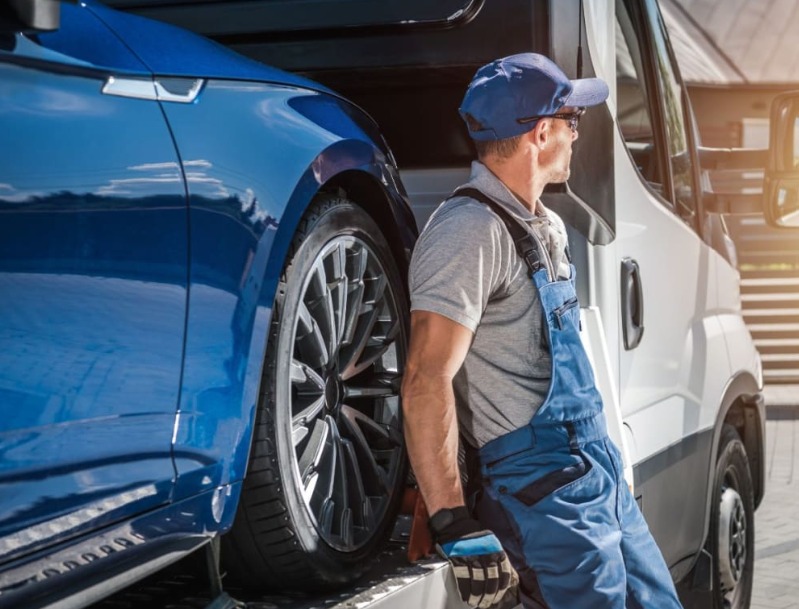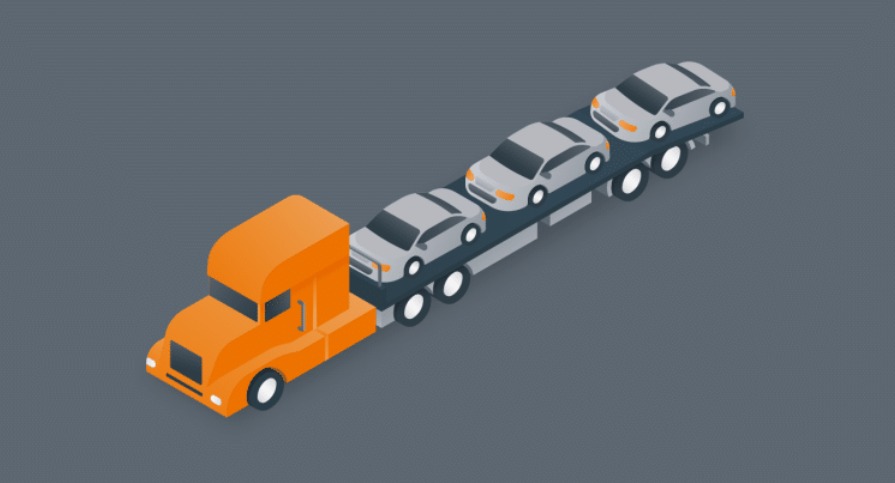How Car Haulers Ship a Non-Running Car

Introduction to Non-Running Car Transport
Transporting a non-running car presents unique challenges that require specialized solutions. Car haulers are professionals equipped to handle these situations efficiently. Whether it’s due to a mechanical failure, an accident, or a long-term restoration project, moving a car that can’t drive itself involves several steps to ensure it is done safely and effectively.
The first step in the process involves assessing the condition of the vehicle. This helps determine the best method of transport and the specific equipment required. Completely immobile cars will need different handling compared to those that can still roll but cannot start.
Expert car haulers utilize flatbed trucks and trailers for such tasks. These vehicles have stable platform which can adjust cars of different size that are not running. Besides this, winches are also important in the mechanism of loading, as they enable the vehicle to be hauled onto the flatbed with no working power required.
A major concern during the transportation of non-running cars is safety. Securing the vehicle properly on the transport platform is essential to prevent any movement during transit. Some of the techniques used by car haulers include application of straps and wheel chocks which are meant to make sure that the vehicle does not move during transit.
Knowing the ins and outs of non-running car transport might assist you in appreciating the skills and tools of the trade. Getting to know the process will allow you to make the appropriate decisions and provide that your car will arrive at its destination in the most suitable state possible.

Types of Equipment Used
Flatbed trucks and trailers are essential for transporting non-running cars, providing a stable platform for vehicles that cannot move on their own. These flatbeds are of different sizes, which carry different types and sizes of cars. The even surface will make the transportation of the vehicle steady.
In this, winches are necessary equipment. They are used to pull the car onto the flatbed, ensuring it is securely positioned. The strength and capacity of winches vary, but they are designed to handle the weight of most non-running cars. Another tool that is commonly used is the wheel lifts which help in hoisting the vehicle up onto the transport platform without damaging it.
The ramps also prove essential when loading the non-running cars. They give a shallow slope, which increases the ease of rolling the vehicle onto the flatbed. In some cases, dollies may be used to maneuver the car, especially if it needs to be transferred over a short distance before being loaded.
Additional equipment includes wheel chocks and straps. Wheel chocks are used to prevent any movement of the car once it is on the flatbed, while straps are employed to secure the vehicle firmly in place. These tools work together to ensure that the car remains stationary and safe throughout the journey.
Professional car haulers are trained in the use of this specialized equipment, ensuring that each tool is utilized effectively to transport your non-running car safely and securely.
Steps in Preparing a Non-Running Car for Shipment
Preparing your non-running car for shipment involves several important steps. Start by removing any valuable personal items from the vehicle to prevent loss or damage during transport. It’s also wise to take photographs of your car from various angles, documenting its condition before shipment. This can be helpful in case of any disputes about damage during transit.
Next, ensure that the vehicle is clean both inside and out. A clean car makes it easier to spot any pre-existing damages and helps maintain its condition during transport. Check that all loose parts, such as mirrors or spoilers, are either removed or securely fastened to avoid them getting damaged or causing damage.
You should also disconnect the battery and drain any fluids if required by the transport company. This is a safety precaution to prevent leaks or electrical issues during the journey. Additionally, make sure the tires are properly inflated to facilitate easier loading and unloading.
Lastly, gather all necessary documentation, such as the car’s title, registration, and any transport permits. Ensure these documents are up-to-date and accurate to avoid any delays or legal issues. Having a set of keys ready for the car hauler is also crucial; consider providing a spare set as a backup.
By following these steps, you can help ensure that your non-running car is properly prepared for a safe and efficient transport experience.

Choosing the Right Car Hauler
Selecting a reliable car hauler for your non-running car is crucial for a smooth transport experience. Start by doing some research on companies that have solid experience in dealing with non-runners. Look at the reviews and ratings left by customers to estimate their reputation and trustworthiness. It is also important to ensure that the company is licensed and insured with coverage that will take care of your car during the transportation.
Ask potential car haulers about the specific equipment they use for transporting non-running cars, such as flatbed trucks, winches, and wheel chocks. This is because their knowledge on the use of these tools can determine their ability to handle your vehicle safely. You need to ask them about training and experience and ensure that they have well trained operators who know what they are getting in to.
The important thing in choosing a car hauler is communication. A transparent company will give a clear and elaborate detail of its process, timelines and any possible additional costs. They should be responsive to your questions and willing to explain the steps they take to secure and transport your vehicle.
Additionally, consider the availability of tracking services. The ability to track your car in real time means that the companies offering such services can give you peace of mind, as you will be able to check on the status of your car and its location during the transport. With a careful selection of the possible car haulers and making sure that they correspond to these requirements, one can make a well-informed choice that will contribute to the safe and effective delivery of your non-running car.
Cost Factors and Considerations
Pricing for transporting a non-running car can vary significantly and be influenced by multiple factors. One primary consideration is the distance of the transport. Longer distances typically result in higher costs due to increased fuel consumption and travel time. Vehicle size and weight also play crucial roles; larger or heavier cars may require more specialized equipment, impacting the overall cost.
Another factor is the complexity of loading and unloading the non-running car. Completely immobile vehicles often need more labor and specialized tools, such as winches and wheel lifts, which can drive up the cost. The condition of the car and any special handling requirements, like fragile parts or specific loading instructions, can also add to the expenses.
Timing can affect pricing as well. Urgent or expedited shipping requests usually come at a premium. Seasonal demand fluctuations may also influence costs, with certain times of the year being more expensive than others.
Additional fees to consider include permits for transporting non-running vehicles, which some regions may require. Special handling fees might also arise if the car needs extra care due to its condition. The best way to do this is to request detailed quotes in writing with several car haulers, and consider all of these variables to make a decision that is informed.

Safety Measures During Transport
Ensuring the vehicle’s safety during transport involves several crucial steps. Car haulers must take extra care when loading and unloading, using specialized tools to avoid any damage. Straps and wheel chocks are vital in securing the car firmly on the transport platform, preventing any movement that could result in scratches or dents. Regular monitoring throughout the journey ensures that the vehicle remains in the same condition as when it was loaded.
An additional service that most car haulers provide is real-time tracking, which means that you can know the location and status of your car. This aspect gives one peace of mind, knowing that the car is in the right hands. Also, it aids in the prediction of delays or problems that could occur during shipment.
Experienced car haulers are trained to handle non-running cars with care, using appropriate methods to secure and protect the vehicle. Their expertise, combined with the right equipment, ensures that your non-running car is transported safely to its destination.
Conclusion and Final Thoughts
The idea of shipping a non-running car might appear to be challenging, yet, with a proper attitude, it might turn into a smooth procedure. It is all about knowing the specialized equipment and procedures, starting with flatbed trucks and winches up to properly securing the car with straps and wheel chocks. Choosing a reliable car hauler with experience in handling non-running vehicles is equally important, as their expertise ensures your vehicle is managed with care.
It’s also crucial to prepare your car thoroughly before transport. Remove any personal items, document their condition with photographs, and make sure all necessary paperwork is in order. This preparation helps prevent any issues and ensures a smooth process.
While cost is an important consideration, remember that factors like distance, vehicle size, and special handling requirements can influence pricing. You will better understand the projected cost by getting detailed quotes provided by several haulers so you may include this in your budget.
A high priority should be given to safety. Reliable car haulers use secure methods to transport your car and may offer real-time tracking to keep you informed throughout the journey. Such transparency gives one peace of mind, in addition to enabling you to be aware of the status of your car.
To sum it up, when taking these suggestions and cooperating with the professional car haulers, you should be able to have your non-running car shipped in a safe and efficient manner, getting to its new location in the condition as good as possible.

